Butt Lift in Georgia
Search and Compare the Best Clinics and Doctors at the Lowest Prices for Butt Lift in Georgia

Find the best clinics for Butt Lift in Georgia
No clinics available
Egypt offers the best prices Worldwide
Price: $ 600

- Home
- Georgia
Compare Before & After Photos of _procedure_photos.phpButt Lift


Front view


Half-side view
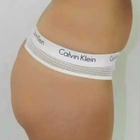

Full-side view
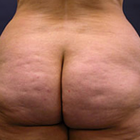
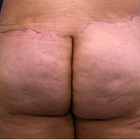
Front view
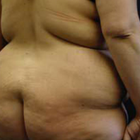
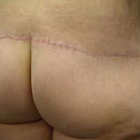
Front view
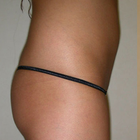

Half-side view

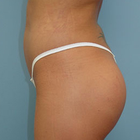
Half-side view
WHY US?
At Medijump, we're making medical easy. You can search, compare, discuss, and book your medical all in one place. We open the door to the best medical providers worldwide, saving you time and energy along the way, and it's all for FREE, no hidden fees, and no price markups guaranteed. So what are you waiting for?

Free

Best Price

Widest Selection

Risk-Free
What you need to know about Butt Lift in Georgia
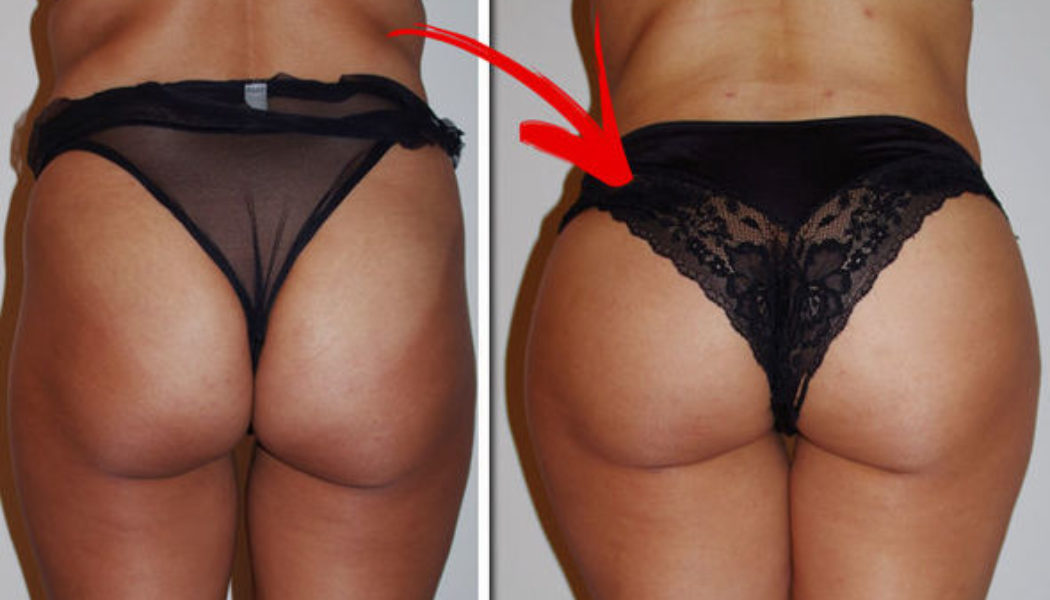
Before you undergo butt lift surgery, you may have loose, saggy, and droopy buttocks making you look and feel older than your age. With butt lift surgery, you can get more rounded and toned buttocks since it reshapes your body contour, making you look younger than your age.
The Butt lift is a surgical procedure to remove unwanted fat or loose skin from the buttocks in order to help reshape them. Implants and Liposuction are often involved and incisions using a cannula can be applied to the crease of the buttocks so there is no visibility of scarring. Butt Lifts are common among those who have lost lots of weight and consequently, the shape of their buttocks has changed. It may be performed as part of a Tummy Tuck (belt lipectomy) or lower body lift to contour the buttocks, groin, thighs, and abdomen. (Another option is to have a Brazilian Butt Lift).
A buttock lift alone won't add any volume to the buttocks. But sometimes, a buttock lift is combined with an augmentation procedure to alter the shape or size of the buttocks with implants or fat grafts. By removing excess skin and fat from your buttocks, a buttock lift can give you a more toned appearance.
What is the cost of Butt Lift in Georgia?
When estimating the price of a Butt Lift in Georgia, it's vital to acknowledge that the outlay incorporates numerous diverse elements. Initially, the competencies and reputation of the surgeon executing the process have a significant impact on the determination of the cost. Surgeons who are highly skilled and have an excellent reputation often demand higher fees for their proficiency. The surgeon's expertise directly influences the procedure's success and safety, making it a substantial part of the overall expense.
Besides the fee of the surgeon, the expenditure of the medical facility, costs of anesthesia, and clinical tests contribute significantly to the overall expense. These costs can fluctuate dramatically based on the procedure's intricacy and the location where the operation is taking place. Also worthy of consideration is the expense associated with preoperative lab work, post-operative care, and any necessary medication or medical supplies needed during the recovery phase.
What does a Butt Lift Procedure Involve?
Butt lift is most often carried out under general anesthesia. An incision is applied along your lower back from one butt to the other. The excessive skin and adipose tissue are removed through this incision lifting your butts up. The rest of the fat is redistributed and the skin is tightened. Incisions are stitched and surgical tapes are used to provide additional support. Bandages are applied to the wound. Drainage tubes are inserted to remove excess fluid and blood.
Should you get a Butt Lift?
Butt lifts work by removing excess skin and adipose tissue from the site and repositioning the leftover skin and adipocytes. Redistribution of fat and skin changes the contour of your buttocks, making them no longer appear saggy and droopy. Also, it should not be confused with Brazilian Butt Lift which is an entirely different procedure.
Not everyone is a good candidate for butt lift surgery. Discuss your medical history with MyMediTravel, any prescription drugs you are taking, the desired results you hope for, the pros and cons of the surgery, cost, recovery time, risks, success rate or any other query which comes in your mind regarding this procedure.
You might consider a buttock lift if you:
- Have lost a significant amount of weight and your weight has been stable for at least 6 to 12 months.
- are overweight and haven't been able to lose a significant amount of weight through physical activity and changes in your diet.
- Have a normal weight, but want a dramatic improvement in the appearance of your lower body.
- Have a normal weight, but your skin won't contract after liposuction due to poor elasticity related to aging.
How Long Should I Stay in Georgia for a Butt Lift Procedure?
Butt lift is a 2-5 hours long surgery and will require at least 1-2 nights stay in the hospital, although in some cases you can be discharged on the same day. Even after being discharged, you have to stay in Georgia for at least 10-14 days for follow-ups. During this period, your health is strictly monitored, you are given medicines to help you with pain and to prevent infections. Stitches are removed after 7-10 days. If everything is fine during this time, you are free to travel home.
What's the Recovery Time for Butt Lift Procedures in Georgia?
In total, 4-6 weeks of recovery time is required before getting back to your normal routine, so avoid excessive and unnecessary activities during this period. There will be bruising and swelling around the operated area which subsides gradually after a few days. You can start office work 10 days after post-op if your job does not require long periods of sitting time - if it does, just be sure to move around as much as possible.
The recovery time can vary according to your health, environment, and daily routine. You can start driving after 4-6 weeks but do not travel long distances as it will require you to sit for too long. Scars take much longer to fade away. In 4-6 months, you should expect to have fully recovered.
What sort of Aftercare is Required for Butt Lift Procedures in Georgia?
The following are some points which should be considered for your aftercare:
- Quit smoking and drinking because tobacco and alcohol slow down blood circulation hence slowing down your recovery.
- Avoid sitting for long periods for at least a week after the procedure.
- Avoid such positions which can put a strain on your scars. It can re-open your wound.
- Change your dressing regularly to avoid infection.
- Take prescribed pain killers and antibiotics to relieve pain and prevent infection.
- Wear some supporting garments for the early few weeks.
- Use scar cream to massage your scars. It will speed up their fading.
- Do not lift children and heavy objects.
- Avoid climbing up the stairs.
- Avoid exercise, gym, swimming, and other strenuous activities for several weeks.
- Abstain from sexual activity until allowed by your doctor.
- Start taking small steps the next day after going through the surgery to prevent blood clot formation.
What's the Success Rate of Butt Lift Procedures in Georgia?
Butt lift is a highly successful and long-lasting procedure. An ideal weight should be maintained to keep the results of your surgery consistent. It is found to be far more successful than the Brazilian butt lift surgery, which has lead to patient deaths - unlike the Butt Lift surgery, which has not recorded any fatalities. The vast majority of patients are extremely happy with not only the results of the procedure but with the entire process leading up to and following the surgery.
Are there Alternatives to Butt Lift Procedures in Georgia?
The operation should never be the foremost option and consider all other options first. Following are some non-surgical alternatives to butt lift surgery:
- Fillers: these are getting a lot of fame these days. Fillers such as Restylane, Sculptra, etc. are injected into your buttocks, making them look plump and lifted without surgery. They induce collagen production in your buttocks. Sculptra is found to be most effective for this purpose. It is advantageous as it has no downtime.
- Hydrogel buttock shots: hydrogel injections give your butt a rounded contour along with a lift. But they are not usually recommended.
- Liposuction: in this method, adipocytes are removed from your butts through injections to give them a more toned appearance. This fat can be injected at other places of your body if required.
- Exercise: some exercises, such as squats will help to change the shape of your butts, tighten them, and lift them up without surgery.
What Should You Expect Before and After the Procedure
Prior to the Butt Lift at Georgia, be prepared for a comprehensive consultation phase. The medical expert will compile an exhaustive medical history, carry out a physical check-up, and converse about your aspirations and anticipations related to the procedure. Transparency regarding your health status and expectations during these consultations is of utmost importance. Some lab tests and medical imaging may also be necessary to examine your general health and determine your eligibility for the procedure. Subject to your health conditions and personal circumstances, guidelines for the pre-procedure phase will be communicated to you. This might involve guidelines regarding food intake, hydration, adjustments in medications, and consumption of substances like tobacco and alcohol.
Another critical element before the procedure is mental readiness. Naturally, feelings of worry or apprehension may arise before the procedure. Engaging in open and candid discussions with your medical expert regarding your apprehensions and expectations can help mitigate such feelings. Instructions about the logistics on the day of the procedure, such as the time to report at the clinic, appropriate attire, and arrangements for travel, will also be shared with you.
Upon completion of the Butt Lift, your condition will be closely observed in a post-operative area until the effects of anesthesia subside. Feeling some discomfort, experiencing swelling, and noticing bruising after the procedure is quite normal. Medications for managing pain and reducing swelling, as well as preventing infection, will be administered. Essential post-procedure care guidelines will be provided to you, which should be strictly adhered to ensure a seamless recovery process. These guidelines usually include instructions for wound care, medication routines, restrictions on activities, and what symptoms of complications to be vigilant about.
What are Potential Risks of Butt Lift?
Just like any operative process, Butt Lift also has inherent risks involved. The degree of potential risks can drastically differ from person to person based on their health conditions, techniques employed during the procedure, and the expertise of the surgeon. Usual risks linked to this procedure encompass adverse reactions to anesthesia, bleeding, infections, and variations in skin feeling. It is crucial to understand that the occurrence of such risks is generally low, and a majority can be lessened by adhering to the post-operative guidelines given by the healthcare professional. For instance, prevention of infection can be achieved through maintaining suitable post-operative wound hygiene, whereas the adverse effects of anesthesia can be minimized through a detailed discussion of your past medical records with your healthcare professional ahead of the surgery.
Although less usual, more critical complications can include a situation such as a fat embolism, which is the blockage of a blood vessel due to a piece of fat breaking away, affecting cardiac activity or leading to a pulmonary embolism. Asymmetry could also occur, where one buttock varies in size or form than the other. However, this is typically associated with the technique used and pre-existing body conditions rather than a specific risk associated with the procedure. If dissatisfaction arises with the aesthetic result, another surgical intervention might be necessary.
Whilst the information presented here has been accurately sourced and verified by a medical professional for its accuracy, it is still advised to consult with your doctor before pursuing a medical treatment at one of the listed medical providers
No Time?
Tell us what you're looking for and we'll reachout to the top clinics all at once
Enquire Now

Popular Procedures in Georgia
Prices Start From $113

Prices Start From $208

Prices Start From $931

Prices Start From $76

Recommended Medical Centers in Georgia for procedures similar to Butt Lift

- Interpreter services
- Translation service
- Religious facilities
- Medical records transfer
- Medical travel insurance
- Health insurance coordination
- TV in the room
- Safe in the room
- Phone in the room
- Private rooms for patients available

- Interpreter services
- Translation service
- Religious facilities
- Medical records transfer
- Medical travel insurance
- Health insurance coordination
- TV in the room
- Safe in the room
- Phone in the room
- Private rooms for patients available

- Interpreter services
- Translation service
- Religious facilities
- Medical records transfer
- Medical travel insurance
- Health insurance coordination
- TV in the room
- Safe in the room
- Phone in the room
- Private rooms for patients available

- Interpreter services
- Translation service
- Religious facilities
- Medical records transfer
- Medical travel insurance
- Health insurance coordination
- TV in the room
- Safe in the room
- Phone in the room
- Private rooms for patients available

- Interpreter services
- Translation service
- Religious facilities
- Medical records transfer
- Medical travel insurance
- Health insurance coordination
- TV in the room
- Safe in the room
- Phone in the room
- Private rooms for patients available
Butt Lift in and around Georgia
Introduction
Georgia is located in the Caucasus region of Eurasia and it is the most visited country in South Caucasus. From its green valleys and vineyards to its old watchtowers and old churches, this country will never disappoint. Over the last 5 years, Georgia has been visited by an increasing number of medical tourists. These foreign patients, mostly come from Saudi Arabia, Kuwait, Iraq, and Russia, are attracted to Georgia’s high-quality and affordable medical care, as well as the medical center’s first-class services. Most of these patients come for dental treatments, cosmetic surgery, oncology, radiology, liver and kidney transplantation, bone marrow transplantation, orthopedics, infertility treatment, and bariatric surgery.
Popular Cities and Regions in Georgia
Georgia’s vibrant capital, Tbilisi, offers picturesque Old Town, outstanding architecture, dramatic valley setting, and terrific cuisine. Home to 30% of the country’s population, this city is lively and filled with hipster culture and techno scene. One of the most famous monuments in the city is Kartlis Deda, which is a 20-meter tall aluminum symbol of Tbilisi. Another popular city is Batumi, which is the country’s most charming seaside destination. Its synthesis of the mountain and the sea is truly unique and interesting. The most popular attractions in this city, besides its beach, are Batumi Boulevard, Batumi Botanical Garden, Medea Monument, Ortajame Mosque, and Batumi Archeological Museum.
Transport in Georgia
International tourists will arrive in Tbilisi International Airport. It serves flights to and from several cities in Europe, the Middle East, and Asia. There are numerous budget airlines that operate flights from this airport, including IndiGo, Ryanair, and AirAsia X. To travel around the country, domestic flights, buses, and trains are available. To get around major cities, several public transportation options are available. The most common way to get around is by local minibus and buses. Taxis are widely available, but make sure to agree on the fare before getting on.
Visas in Georgia
Georgia allows citizens of 98 countries, including all European Union countries, the US, Japan, and Australia, to stay for a year. Holders of passports issued by 66 countries, such as Bolivia and Egypt, are eligible to apply for e-Visa. The e-Visa is valid for 90 days per 180-day period and 30 days per 120-day period. Citizens of other countries, such as Sudan and Morocco, need to apply for a visa in advance.
Weather in Georgia
Winter in Georgia is usually very cold, with temperatures ranging from 2°C to 6°C, and sometimes dropping below 0°C at night. Summer, from June to August, is pleasantly warm with average temperatures of 20°C to 30°C. However, some coastal areas are humid during this season. Spring and Autumn are delightful as the weather is not too hot, nor too cold. Both of these seasons see frequent rainfalls.
Additional Info
- Local Currency: Lari (GEL) is the official currency of Georgia. 1 USD is equivalent to 2.7 GEL.
- Money & Payments: ATMs are easily available and credit cards are accepted in most restaurants, shops, and hotels. However, if you travel outside of Tbilisi, it’s best to bring plenty of cash. Tipping is expected.
- Local Language: Georgian is the official language. Russian is common, while English is becoming more widespread.
- Local Culture and Religion: The majority of Georgia’s population is Christian. Other religions, including Islam, Judaism, and Bahá'í Faith are present.
- Public holidays: Some of the most celebrated public holidays are New Year’s Day, Orthodox Christmas, Great Saturday, Day of Victory over Fascism, and Independence Day.
Popular Searches
- Plastic Surgery in Thailand
- Dental Implants in Thailand
- Hair Transplant in Thailand
- Breast Augmentation Thailand
- Gastric Sleeve in Thailand
- Gender Reassignment Surgery in Thailand
- Laser Hair Removal in Bangkok
- Botox in Bangkok
- Dermatology in Bangkok
- Breast Augmentation in Bangkok
- Coolsculpting in Bangkok
- Veneers in Turkey
- Hair Transplant in Turkey
- Rhinoplasty in Turkey
- Stem Cell Therapy in Mexico
- Rhinoplasty in Mexico
- Liposuction in Mexico
- Coolsculpting in Tijuana
- Rhinoplasty in Korea
- Scar Removal in Korea
- Gastric Sleeve in Turkey
- Bone Marrow Transplant in India
- Invisalign in Malaysia
- Plastic Surgery in the Dominican Republic
- Tummy Tuck in the Dominican Republic
- Plastic and Cosmetic Surgery in Poland
- Rhinoplasty in Poland
- Hair Implant in Poland
- Dental Implants in Poland
- IVF in Turkey